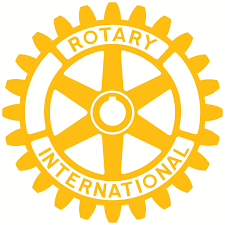Rotary Club Abuja Kubwa Launches Public Sanitation Project in Kungabukun
The Rotary Club of Abuja Kubwa has announced an ambitious plan to construct an eight-unit public restroom facility in the rural Kungabukun community, located within the Bwari area council. The project is budgeted at approximately ₦5 million and aims to combat open defecation while improving sanitation standards in the region.
Addressing Rural Sanitation Challenges to Improve Community Health
Emmanuel Chinonso David, president of the Rotary Club Abuja Kubwa, revealed the initiative during a press briefing following a collaborative training workshop for new members and officers. The event was jointly organized by the Rotary Clubs of Abuja Kubwa, Abuja Kubwa Gateway, and Abuja Unity.
“Our focus this year is on maternal and child health, alongside broader community well-being. The ‘End Open Defecation’ campaign in Kungabukun is a critical step toward these goals,” David explained. He described Kungabukun as a community facing significant health risks due to inadequate sanitation infrastructure.
“Providing a hygienic, accessible public toilet will drastically reduce the spread of diseases linked to open defecation, which remains a major public health concern in many rural Nigerian communities,” he added.
Project Timeline and Financial Overview
The groundwork and construction phases are expected to begin imminently, with the total expenditure estimated between ₦4.5 million and ₦5 million. This investment reflects Rotary’s commitment to sustainable development and community empowerment through practical infrastructure solutions.
Empowering Members Through Comprehensive Training
During the training session, Emmanuel David emphasized the importance of educating new members about Rotary’s foundational values and operational standards. “Our organization thrives on discipline and a shared commitment to service, which this training helps instill in every member,” he stated.
Rotary International District 9127 Assistant Governor, Festus Iyke Agbazua, elaborated on the training’s objectives, highlighting the core pillars of Rotary: leadership development, friendship cultivation, and humanitarian service. He also introduced the “Four-Way Test,” a moral framework guiding Rotarians in ethical decision-making.
Agbazua praised the joint training as a testament to the spirit of collaboration and unity among the three participating clubs.
Insights on Governance and Resource Management
Rotarian Lawrence Okwor, a former district governor, provided a critical perspective on Nigeria’s developmental hurdles. He argued that inefficiencies in resource management, rather than funding shortages, are the primary obstacles to progress.
“Rotary’s success in delivering impactful projects with limited resources underscores the importance of accountability and prudent management,” Okwor remarked. He highlighted corruption as a major factor depleting national resources, citing studies that estimate over 70% of funds in some countries are lost to corrupt practices.
Okwor urged government officials to adopt a mindset shift focused on transparency and public welfare, drawing inspiration from Rotary’s guiding principle of ‘Service Above Self.’ He stressed that enforcing strict accountability measures is essential for sustainable development and societal advancement.


















0 Comments